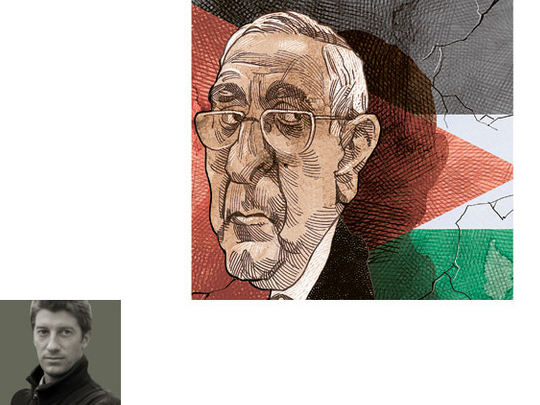
As is typical with Palestinian politics, Salam Fayyad’s resignation is really much ado about nothing. His bowing out shows three worrying developments, though: The growing disconnect of the West Bank leadership from the Palestinian people; the economic stagnation and political standstill over a comatose peace process and increasing fragmentation within Palestinian ranks.
Fayyad in fact, had previously resigned as finance minister and had founded the independent Third Way party that he led to the 2006 legislative elections with Hanan Ashrawi. The attempt was valiant — they won three seats, but lost badly to Hamas’ Change and Reform campaign that also defeated Fatah in a landslide across the Occupied Territories.
Under international community pressure and reconciliation efforts from Saudi Arabia, Hamas acquiesced to having Fayyad be finance minister of the Fatah-Hamas coalition government in March 2007. This was to be short-lived as the US and Israel trained and sent Abbas’ Presidential Guard forces to overwhelm Hamas in Gaza — Hamas responded by taking over the Strip in June 2007.
The intensely repetitive history of the Israeli-Palestinian conflict has not been very original since then as cross-border spats between Gaza-Israel turned into bombardments, Palestinian prisoners’ strikes led to more deaths and Israel’s military occupation continued to thwart any sort of Palestinian economic growth that Fayyad based his entire policy upon.
When Fayyad agreed to take the premiership, he knew that he was acting undemocratically. He had the backing of pro-western Palestinians — mainly the elite — and he had $200 million (Dh735.6 million) coming in from the US Congress to get his development plans going. However, he had lost the elections to Hamas in 2006. This is important to remember because the rest of this story becomes mere rhetoric.
Beyond the fact that he had helped crystallise the political fragmentation with Hamas-ruled Gaza, when he agreed to become prime minister, Fayyad’s tactic was quite clever when it came to Israel and the US. In essence, he was saying: If you want us to make peace then you have to help us develop our economy — show us the money!
And they did. Europe continued to disburse half a billion euros per year either in direct aid to maintain the Palestinian National Authority (PNA) or via international agencies like UNRWA and a plethora of NGOs; the US pitched in too, especially in the security sector; and Israel even began to reimburse the PNA for the millions it was withholding illegally in occupation tax money.
Fayyad put his cards on the table and his tactics were working, for a while. But he was bound to fail because of the source of such massive funding and because there were very few tangible results to show for his efforts. The PNA institutions were refurbished and the prime minister’s office became luxurious, but in the streets, Palestinians lived in the same squalor as before.
Fayyad’s grand bargain was to push Israel to recognise the West Bank as an independent state, when the Palestinians showed their ability to self-govern at respectable economic levels, but he effectively further cut off Gaza and secluded the 1.5 million Palestinians living there from any form of economic activity apart from rampant tunnel trading because there was no political unity.
Hamas, of course, capitalises on being the underdog, on representing the poor, the injured, the prisoners, the disenfranchised, those in mourning and the disgruntled portion of the population that is now the majority. There is a reason the Palestinian prisoners’ movement has gained traction in the West Bank as well: They are detained without trial, they demand a trial — not even to be freed.
Abbas’ government gained no points with the public when it repressed popular demonstrations against Israeli occupation over the past couple of years. Repressing your own people for voicing their legitimate desire for justice and freedom — with the police trained by the Europeans — the Abbas-Fayyad tandem looked like stooges for Israel, just as the Palestinian police had during the Oslo year.
Israel watches bemused. Obama the orator gives an inspiring speech to young Israelis to make a change. John Kerry says the US wants to revive the peace process. Benjamin Netanyahu smiles and creates the most right-wing politico-religious coalition in Israel’s history. More colonies are built. Fayyad never was going to win his hand. It was more wasted money out of the window.
Fayyad’s exit, with no peace to show, is most welcome. Now the gross reality of the Israeli military occupation and the Jewish colonisation of occupied Jerusalem and the West Bank can shine as brightly as the veneer on the long black table of the premier’s posh meeting room. One can only wonder what all the billions were for — power, politics, or the people of Palestine? And where did it all go?
Stuart Reigeluth is founding editor of Revolve magazine.










